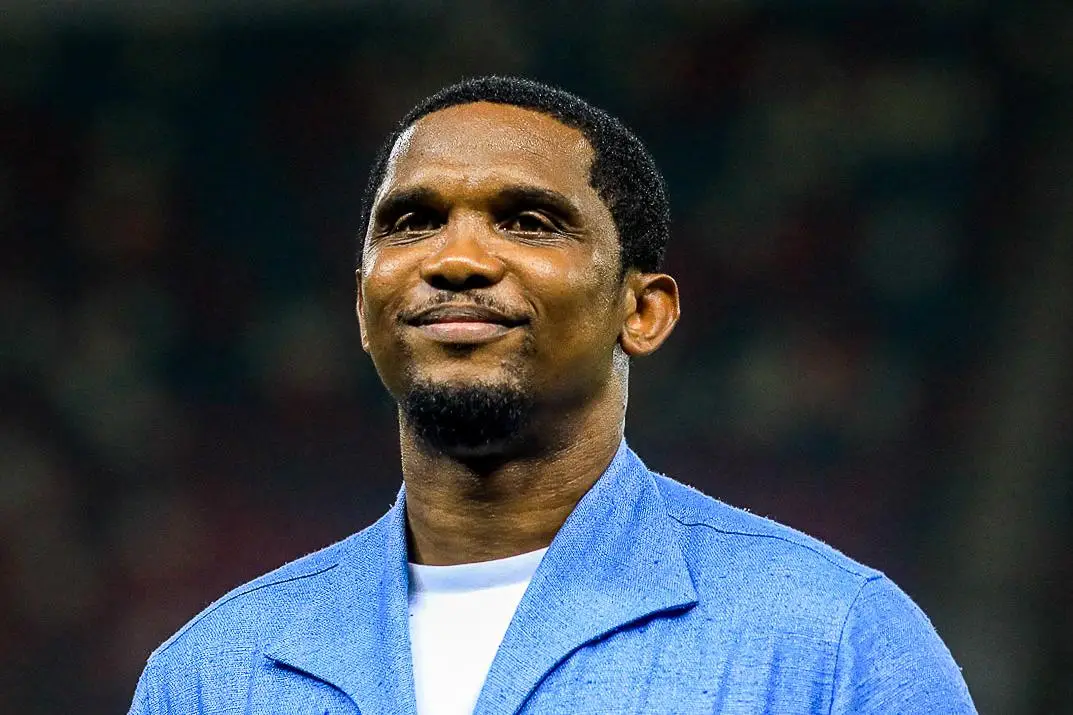
Samuel Eto’o has filed an appeal with the Court of Arbitration for Sport (CAS) after being disqualified from contesting in the upcoming CAF Executive Committee elections, escalating an already contentious battle within African football governance.
The president of the Cameroon Football Federation (FECAFOOT) officially lodged his complaint with CAS on, seeking to overturn the Confederation of African Football’s (CAF) decision to bar him from standing in next month’s elections.
CAF disqualified Eto’o, citing violations of ethical standards, particularly his partnership with betting company 1xBet and a criminal record stemming from a 22-month suspended prison sentence for tax fraud in Spain in 2022.
Election Controversy and CAS Intervention
Eto’o is not alone in challenging CAF’s rulings. Two other high-profile officials, Jean-Guy Blaise Mayolas (Congo) and MacLean Letshwiti (Botswana), have also filed appeals with CAS after being excluded from the elections.
Mayolas was disqualified due to a FIFA-imposed six-month ban in 2015, while Letshwiti, the former Botswana FA president, was blocked from contesting after failing to secure an endorsement from his federation—similar to Cameroon’s Seidou Mbombo Njoya, who also appears set to lose his CAF Vice Presidency after FECAFOOT opted to back Eto’o instead.
CAS has since issued an official letter to CAF, demanding a response to Eto’o’s appeal.
The verdict could have significant implications, with reports suggesting that if CAS rules in his favor, the CAF Executive Committee election list may need to be revised or even annulled.
“If CAS rules in favour of Eto’o, CAF will be forced to reconsider its list of candidates,” said an insider with information on the upcoming elections.
CAF’s Ethics Crackdown or Political Power Play?
Eto’o’s legal battle has added another layer of drama to an already turbulent CAF election cycle, raising questions over whether the exclusions are a genuine enforcement of governance rules or an attempt to influence election outcomes.
CAF’s governance and ethics committee has in recent years stepped up its scrutiny of candidates, leading to multiple disqualifications in past elections.
However, the targeting of high-profile figures like Eto’o, who still holds widespread influence in African football, has sparked accusations of selective enforcement.
“We are witnessing a shift in power dynamics within CAF. Some officials are clearly being sidelined ahead of these crucial elections,” remarked the football governance expert familiar with CAF politics.
The internal divide within CAF has also been exposed through the role of Seidou Mbombo Njoya, the current CAF Vice President, whose fallout with Eto’o and failure to secure FECAFOOT’s endorsement has left him out in the cold—a scenario similar to Letshwiti in Botswana.
What Happens Next?
The CAF Executive Committee elections are scheduled for March 2025, and the final candidate list remains uncertain pending CAS’s ruling on Eto’o’s appeal.
If CAS rules against Eto’o, it would mark the end of his ambitions for a CAF leadership role—at least for this election cycle.
However, a ruling in his favour would disrupt CAF’s carefully constructed election process, forcing the governing body to reinstate him and possibly other excluded candidates.
CAF has yet to issue an official statement regarding Eto’o’s case, but the legal battle has the potential to reshape the governance landscape of African football ahead of what is already one of the most hotly contested elections in recent years.












